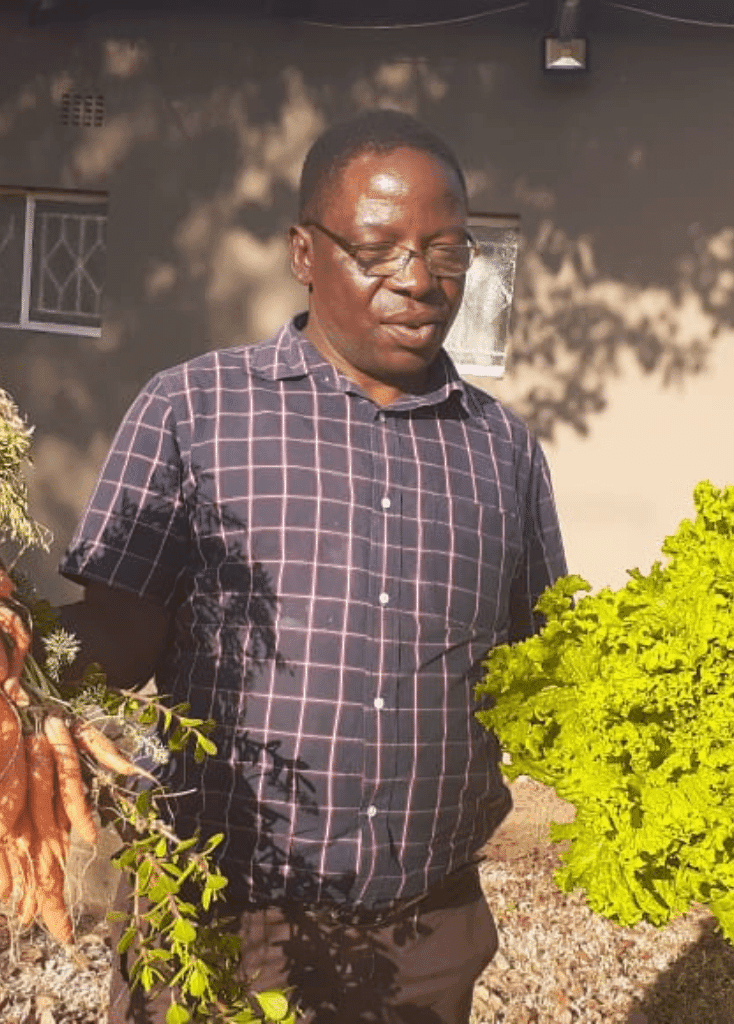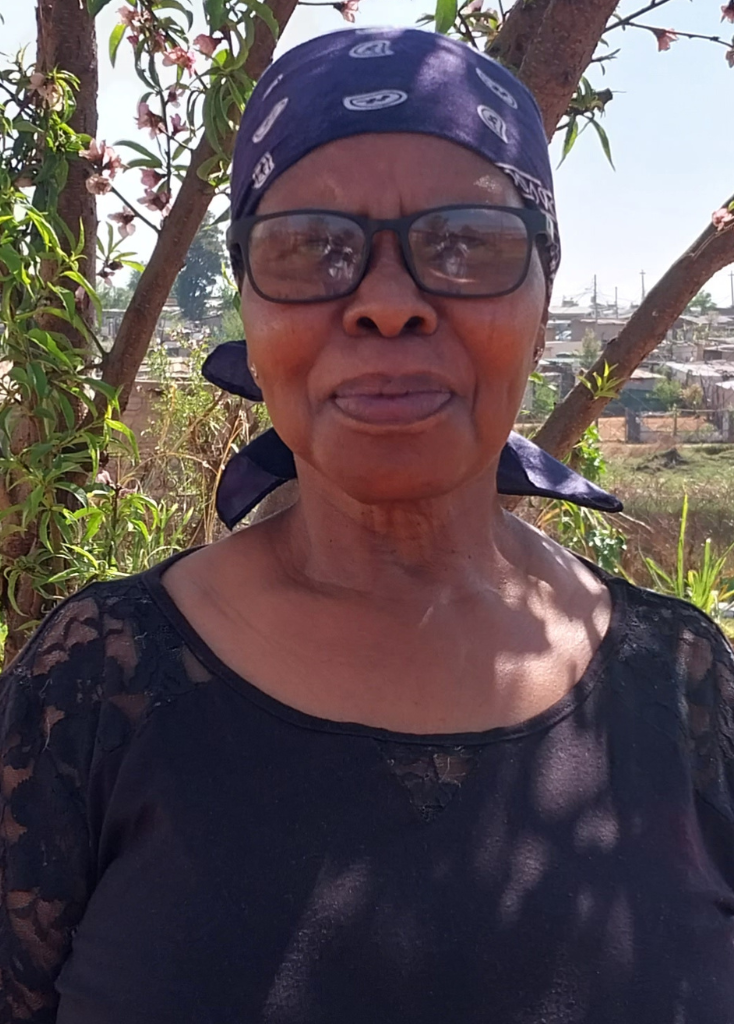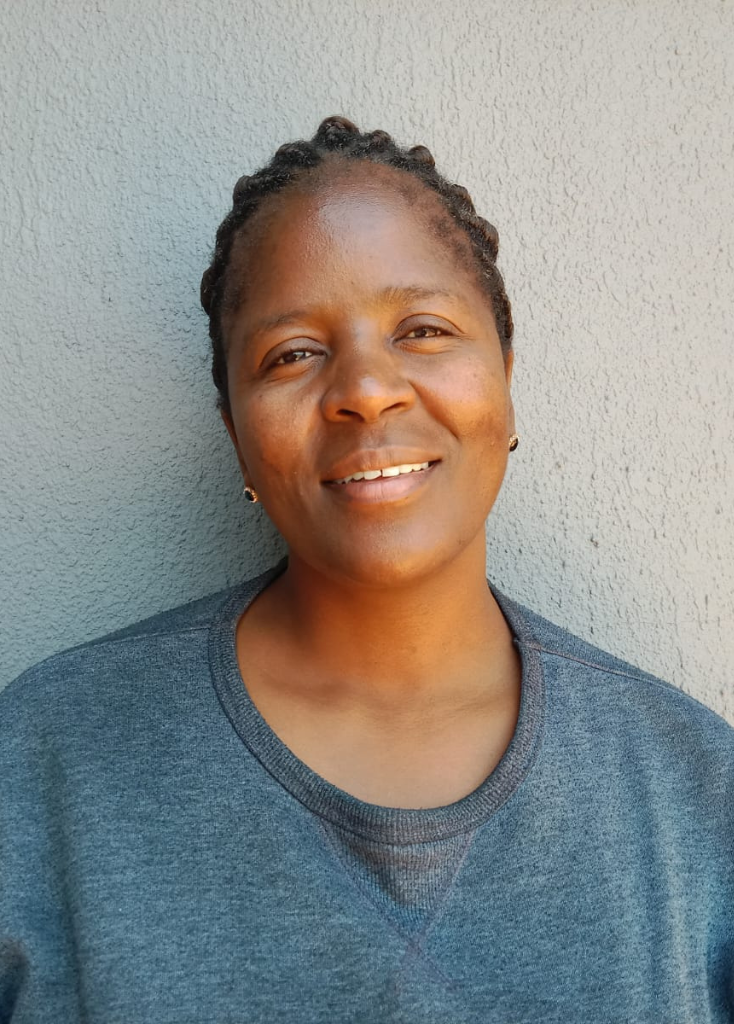FACILITATOR: Cletus Damba
Cletus' Story
I was born into a subsistence farming family in a village called Damba’s which is near Mutare, in Manicaland, Zimbabwe. My family name and the name of our village are the same, which reflects our history. We Dambas have been working the soil in that area for so many generations that we are essentially one being. My parents grew all the classic Southern African staples; maize, sorghum and raphoko (millet), cowpeas, peanuts and bambara nuts.
Our daily diet was predominantly traditional food such as mabele pap with mutsotso (dried cowpea leaf) munyemba relish. We also ate a lot of pumpkin and okra leaves. When it rained wild mushrooms came up which we gathered, dried and gradually consumed throughout the year. Everything we ate was cooked over a fire which gave it a lovely smoky smell and taste.
I joined a young farmers club during my secondary schooling in Harare. We had gardens on the school grounds. I think it was in those school gardens that I first came to understand my calling. Learning to nurture and support plants on their journey to abundance is a very good way of learning about nurturing and supporting people. The two combine, and spiritual and agricultural progress is often one journey.
While I was still at school, I got my first experience of teaching horticulture to others when the young farmers group asked me to run training sessions for other students and for older members of the surrounding community. Later, when I was a theology student, I was sent to do what we called an attachment – a practical placement with a parish – on a farm in Bindura. Brian Oldrieve was the farmer at that first placement and he was very influential in my subsequent thinking because he taught me that when a parish is hungry and angry, the church cannot thrive.
It was in Bindura that I came to see that preaching is not just something you do on Sunday and it is not just something that happens with words inside a church building. Preaching can also be practical. Nature works with God’s climate and seasons. Sharing the word of God can be through planting and soil preparation.
"Seeing God in the beauty of planting is also a way of spreading His word."
Seeing God in the beauty of planting is also a way of spreading His word. When a farmer looks after plants with patience, he is doing as God does when he looks after us. God’s goodness can be seen in healthy food and herbal medicine.
We set up a 10 meter by 10 meter plot next to the church and began teaching horticulture skills because, even though the people were living in a rural area and working with the land, they were using conventional agricultural techniques rather than the more appropriate minimal tillage. Once we showed people how to use our methods they significantly increased their yields.
It was an interesting experience for me and one of the things I learnt was that teaching technical skills will only be successful if you first assist in the creation of positive mindsets. That and helping people to understand time management and waste management are the crucial elements in any project.

"We need to uproot the seeds of dependency. "
That placement sparked a passion for community development and training in me. In 1998, there was a terrible drought in Zimbabwe and I joined the Operation Joseph project which went all around the country teaching waterwise, sustainable farming skills. I learnt such a lot during that time. Many of the lessons that I learnt with Operation Joseph are still helpful in my work today. The chief lesson that I learnt was that if you are to truly transform lives for the better you cannot start not with the garden and the plants. You need to start with the hearts of the people. If you don’t start there, any change you implement won’t last. “Hearts before hands” is all important.
The key change required is that everyone must have an understanding of what a particular problem actually is. You can’t solve a problem that has been misunderstood. Dependency is one of the reasons that people misidentify a problem. We need to uproot the seed of dependency. If people expect their problems to be solved without their input that will never succeed. That just leads to a crisis of expectation.
People expecting handouts will often feel that you have failed them and then they will be angry. When this happens, it is best to listen without interrupting. Let them open up. They have been hurt. They are bleeding inside so it is important to listen respectfully and honour their pain. Only then can you come in with the bandage of truth that will promote healing. Through healing productivity can thrive.
Dependency creates and reinforces weakness, while independency is strength.
Understanding that is the beginning of victory. Often those same people who were the angriest are later the most productive because anger is misplaced energy. Those who raged are often the most articulate members of a community. If someone is talkative and likes to communicate make him a trainer. Channeling that energy can bring magnificence. There is nothing more satisfying than seeing energy channeled productively and lives transformed as a result.
It is not a quick or an easy journey but once that first move away from a dependency mindset has happened, there is a potential for the rest to follow. When we start with the basics and then see someone start to sell and manage their finances and then ultimately have their lives under control, that is wonderful. When those same people start to share the knowledge that they got from us with others, that is a huge victory because a generous mentality is a sign of strength and confidence.
Through SocioTech approaches like Phinda-Phinda, this way of thinking is nurtured and promoted.
And so, little by little, lives change, communities change and ultimately countries can change.







